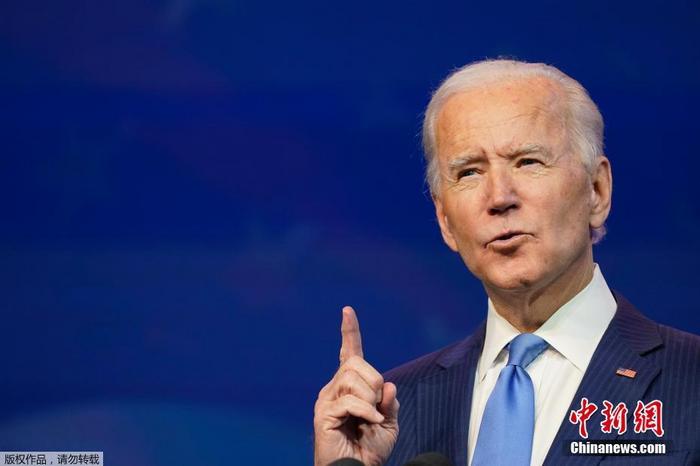China News Agency, Washington, July 16. After a series of bilateral meetings and a multilateral meeting, US President Biden ended his first trip to the Middle East during his tenure in Saudi Arabia on the 16th local time.
On the same day, the "Security and Development" summit attended by the leaders of 6 GCC member states and the United States, Egypt, Jordan and Iraq concluded in Jeddah, the second largest city in Saudi Arabia.
Saudi Crown Prince Mohammed, the host of the summit, said in his opening remarks that the world is currently facing major challenges caused by the new crown epidemic and geopolitics, which requires more concerted efforts by the international community to revive the world economy, achieve food security and ensure public health.
Mohammed also announced that Saudi Arabia "has the ability" to increase domestic crude oil production capacity to 13 million barrels per day, but there is no additional capacity to continue to increase crude oil production for the time being.
Data map: US President Biden.
At the summit, Biden proposed five principles of "partnership, deterrence, diplomacy, integration and values" on U.S. Middle East policy.
He said the goal of U.S. policy in the Middle East is not only to contain threats to regional stability, but also to seek to de-escalate and end conflicts through diplomatic means wherever possible.
Biden said in his speech that Iran's activities are destabilizing the region, and the United States will never allow Iran to acquire nuclear weapons.
He said that the United States and its allies are determined to deal with regional terrorist threats, and the United States promised to strengthen the air defense and early warning capabilities of regional allies to deal with air threats.
After the summit, the participating parties issued a joint statement.
Although the statement deals with issues such as addressing global food security challenges and ensuring international oil supply, most of them are declarations of existing policies and lack substantive consensus.
The statement pointed out that the parties recognized that the Organization of Petroleum Exporting Countries, "OPEC", is working to stabilize the global oil market to meet the interests of consumers and producers, and to support economic growth.
Participants welcomed the decision recently announced by OPEC+ members to increase supply in July and August.
The statement also stated that all participating parties reiterated their commitment to maintaining regional security and stability, supporting diplomatic efforts aimed at easing the situation in the region, deepening regional defense, security and intelligence cooperation, and ensuring the freedom and safety of waterways.
From the 13th to the 16th, Biden visited Israel, the Palestinian West Bank and Saudi Arabia successively. This is his first visit to the Middle East since he took office as president.
(Finish)

